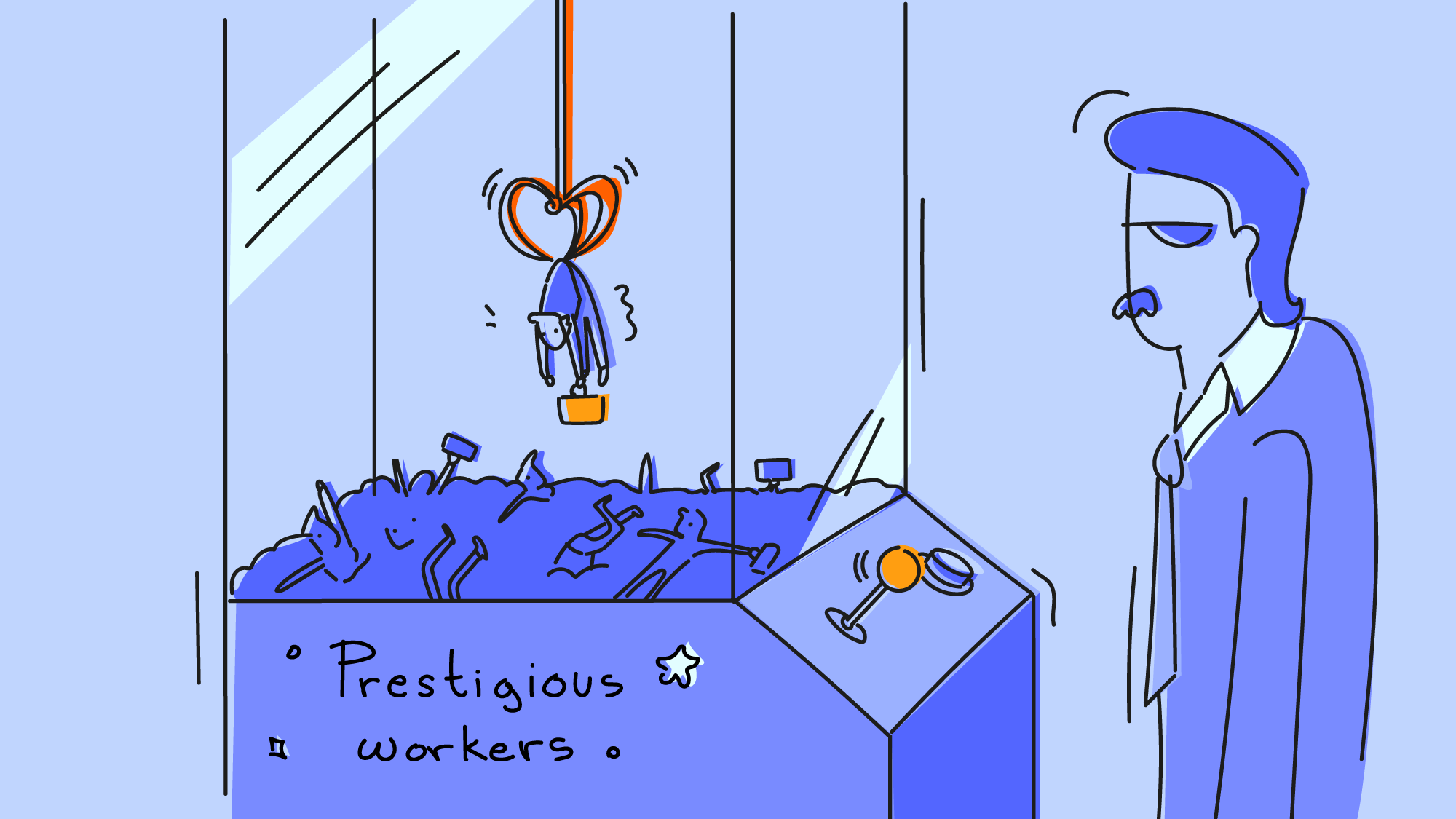- How good you are
- How many people that influence hiring decisions know how good you are
Prestige and associational value
This is 100% true and one of the reasons that I think that Open Badges and Verifiable Credentials are so awesome. Associational value is built-in for human beings, as we’re social creatures who set store by what other people value.
For example, I’m Dr. Belshaw which has a certain cachet and status in some circles. But people are usually much more interested/impressed by the fact that I worked for Mozilla and that one of our co-op’s clients is Greenpeace.
Them’s the breaks. And I feel like passing on this kind of wisdom to the younger generations is really important, to be honest, as a way that the world actually works.
A lot of people suspect that having-been part of a prestigious organisation (such a a famous university or an "elite" org in your field) gets you an unfair advantage when applying for future jobs.Source: Associational Value | Atoms vs BitsThere are two main avenues you could imagine for this advantage. One is basically nepotism: through the organisation you meet lots of other people who will later give you preferential access to jobs.
A second avenue is throughthe associtional value of the institution: that people with no specific connection to you or that organisation will see the name of Prestigious Institution on your resume and hire you because, well, you were at Prestigious Institution.
[…]
I think associational value often comes out of single-sentence descriptions of what somebody has done, and that therefore there are often relatively-easy ways to get 99% of the associational benefits of a prestigious institution at a much lower cost.
For example, in the magazine-writing world, people are often (approximately) defined by 1-3 of the most famous publications they’ve ever written for: “X’s work has appeared in TK, TK and TK,” or “this is my friend Y, she writes for [famous media brand].”
[…]
I’m not entirely sure how to work around this one, beyond the “try to get a mild affiliation with a prestigious institution, even if it’s an incredibly silly one” hack.
Value and liquidity of skills
This is a really nice way of explaining value within jobs and careers. Not only do you have to be good, but other people need to know about it.
It’s easy to make the mistake of conflating how much money you can make with how valuable your skill is. People think that being a doctor or a lawyer or an engineer is of fundamentally more value to society than being a chef or a musician, because they tend to make much more money. But the reality is that if one job makes more money than another, it’s generally not because that labor or skill is fundamentally more valuable, it’s just more liquid, more easily converted to money, or simply less replaceable.Source: Liquidity of skill | thesephist.comYour ability to have a good career is the product of two things: the fundamental value and liquidity of the skills you have. So, when applied to job hunting, this means that there are really only two things that matter.
All of the games people play to get an edge in hiring, like polishing resumes, practicing interviews, or going to networking events, are simply the popular ways of maximizing one of these two quantities. These small tactical pieces of advice can be useful, but I find it helpful to know what the ultimate goals are: to be good, and to have as many people know that as possible.
You get paid what other people think you're worth
Great post by Seth Godin:
Yes, we frequently sell ourselves too short. We don't ask for compensation commensurate with the value we create. It's a form of hiding. But the most common form of this hiding is not merely lowering the price. No, the mistake we make is in not telling stories that create more value, in not doing the hard work of building something unique and worth seeking out.
Create stuff that people value and that is in scarce supply. Focus on leaving the world a better place than you found it.
Source: Seth’s blog
